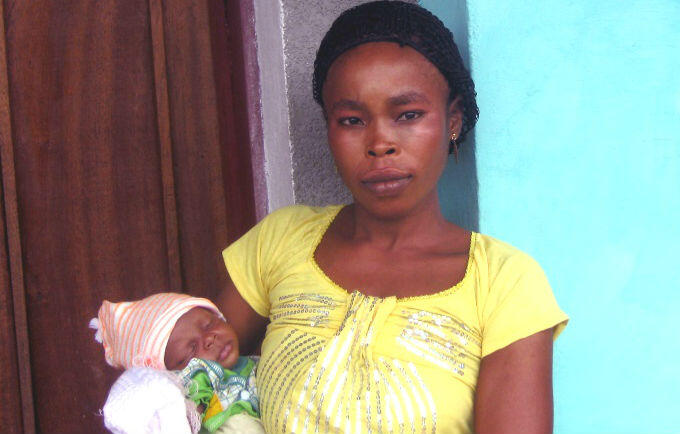By: Gift Malunga, UNFPA Deputy Representative & Officer in Charge and Marko Lesukat, UNFPA Humanitarian Specialist
In a humanitarian crisis saving life is more than just providing food, shelter and water. Life-saving services to safeguard women’s health and address gender-based violence are as essential as food, water and shelter and must be prioritized in humanitarian action. In line with the Grand Bargain reached at the World Humanitarian Summit in May 2016 the needs of the most vulnerable must be emphasized.
On February 10, 2017, President Kenyatta declared the drought in 23 counties in Kenya a national disaster. The government projects that about 2.6 million people are currently affected by the drought and in need of immediate support. On March 16th the United Nations launched a funding appeal to complement the government’s efforts to address the humanitarian crisis.
The United Nations Population Fund, UNFPA, together with the rest of the UN family, and other international humanitarian organizations are well positioned to provide humanitarian assistance to thousands of people in need of assistance. Our focus as UNFPA is to ensure the integration of sexual and reproductive health in humanitarian response
Attending to the reproductive health needs of women and girls not only sustains their dignity and well-being during crisis situations like droughts. Keeping them healthy is also crucial so they can support the response to the crisis in their own communities.
In crisis situations one in five women of childbearing age is likely to be pregnant. Complications that occur during pregnancy or childbirth can be life threatening during conflict and natural disasters when health-care services are destroyed or disrupted. Our Safe Birth Even Here-campaign estimates that globally 500 women and girls die every day from pregnancy related complications and childbirth in areas affected by conflict or natural disaster.
Equally, gender-based violence, lack of services and unwanted pregnancies push women and young girls further in to a dire situation as their health deteriorates and their ability to participate in the response is diminished. The vulnerability of women and girls to sexual violence, exploitation and sexually transmitted infections, including HIV, is increased during emergencies.
The Minimum of Services
In a humanitarian disaster UNFPA utilizes, and advocate for the use of, a Minimum Initial Service Package, which is a combination of actions to respond to sexual and reproductive health needs and a reproductive health kit. The kit consists of life-saving medicines, contraceptives and medical equipment to address the immediate sexual and reproductive health needs of the community in a crisis.
Providing the Minimum Initial Service Package in humanitarian disasters, such as the ongoing drought in Kenya and the region, serves several purposes. It mitigates further crisis, which often evolves because scarce resources and minimal basic social services can lead to conflicts. Further the timely provision of services that addresses reproductive health needs enables women and girls to actively participate in the community’s response to the crisis.
The short, medium and long term impacts that drought emergencies have on maternal and child health should not be underestimated and deserve equal attention to avert preventable deaths.
We are committed to empower and promote the participation and leadership of women and girls in crisis prevention and recovery. For this to happen we need to maintain our focus on the ability of women and young people to respond in a crisis. This also implies that sexual and reproductive health needs are addressed alongside water, food and shelter. If we don’t do that, we omit one of the most crucial directives during a disaster: prevent further crisis. Providing sexual and reproductive health services does exactly that.
Having the means to prevent an unplanned pregnancy, give birth safely and be protected from sexual violence are human rights. Protection from harm should always be central in emergency responses. Restoring dignity, reducing risk, strengthening preparedness, building peace, fostering resilience and supporting long-term development is a crucial investment to make at the onset of a humanitarian crisis. Investing in the reproductive health of girls and women and preventing gender based violence during emergencies is the best way to leave no-one behind.


